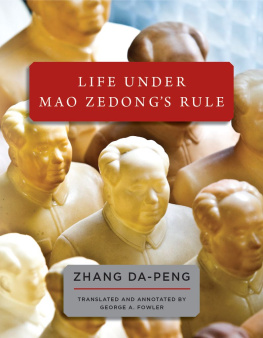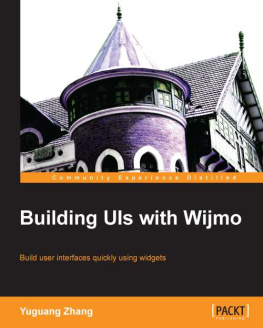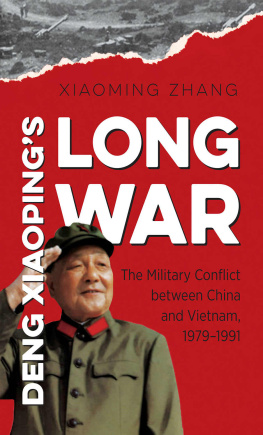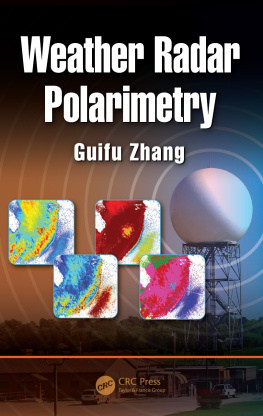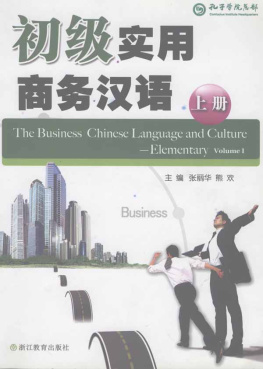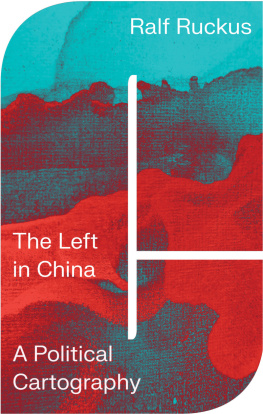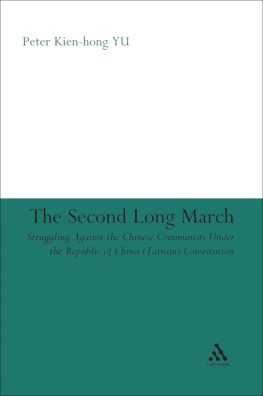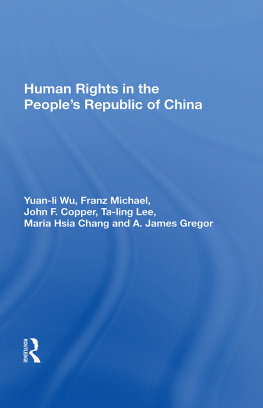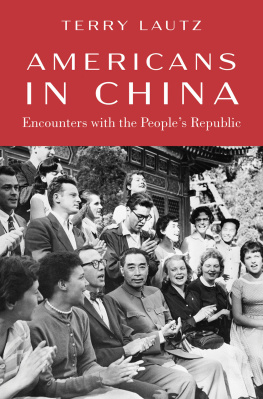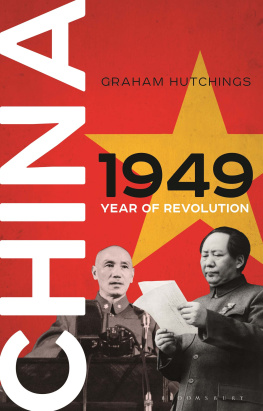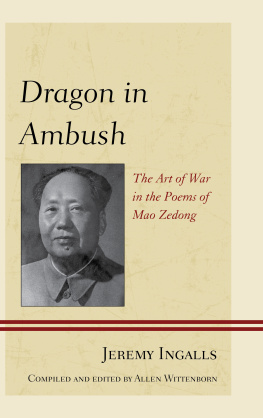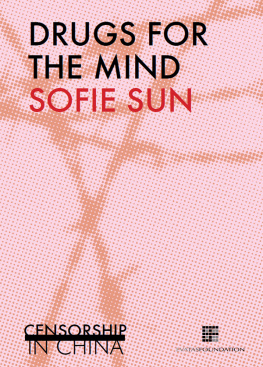Zhang - Life Under Mao Zedongs Rule
Here you can read online Zhang - Life Under Mao Zedongs Rule full text of the book (entire story) in english for free. Download pdf and epub, get meaning, cover and reviews about this ebook. year: 2013, publisher: CreateSpace Independent Publishing Platform, genre: Non-fiction. Description of the work, (preface) as well as reviews are available. Best literature library LitArk.com created for fans of good reading and offers a wide selection of genres:
Romance novel
Science fiction
Adventure
Detective
Science
History
Home and family
Prose
Art
Politics
Computer
Non-fiction
Religion
Business
Children
Humor
Choose a favorite category and find really read worthwhile books. Enjoy immersion in the world of imagination, feel the emotions of the characters or learn something new for yourself, make an fascinating discovery.
- Book:Life Under Mao Zedongs Rule
- Author:
- Publisher:CreateSpace Independent Publishing Platform
- Genre:
- Year:2013
- Rating:4 / 5
- Favourites:Add to favourites
- Your mark:
- 80
- 1
- 2
- 3
- 4
- 5
Life Under Mao Zedongs Rule: summary, description and annotation
We offer to read an annotation, description, summary or preface (depends on what the author of the book "Life Under Mao Zedongs Rule" wrote himself). If you haven't found the necessary information about the book — write in the comments, we will try to find it.
Zhang: author's other books
Who wrote Life Under Mao Zedongs Rule? Find out the surname, the name of the author of the book and a list of all author's works by series.
Life Under Mao Zedongs Rule — read online for free the complete book (whole text) full work
Below is the text of the book, divided by pages. System saving the place of the last page read, allows you to conveniently read the book "Life Under Mao Zedongs Rule" online for free, without having to search again every time where you left off. Put a bookmark, and you can go to the page where you finished reading at any time.
Font size:
Interval:
Bookmark:

Copyright 2013 Da-Peng Zhang
English translation copyright 2013 by George A. Fowler
All rights reserved.
ISBN: 1477428712
ISBN-13: 9781477428719
eBook ISBN: 978-1-63002-040-8
Library of Congress Control Number: 2013903830
CreateSpace Independent Publishing Platform
North Charleston, South Carolina
Table of Contents

Inviting a god in is easy, but sending it off is not Chinese saying
H ong Kongbased, China-born businessman Zhang Da-Peng came to writing quite late in life. His first novel, Huang jin lu (The Golden Road), a rags-to-riches business saga set in the Deng Xiaoping era of reforms and opening, was written in 1999, when he was fifty-eight and recovering from liver transplant surgery. Upon completion of that novel, Mr. Zhang immediately commenced writing his autobiography, Shenghuo zai Maozedongde tongzhixia (Life under Mao Zedongs Rule), which was published by Taiwans Yuenching Publishing House in 2002.
Life under Mao Zedongs Rule tells of a Shanghai youths coming-of-age during Chinas Maoist periodthat is, from the official establishment of the Peoples Republic of China on October 1, 1949, to the return of Deng Xiaoping to political power in July 1977. Zhang Da-Peng has divided his story into two parts: Lei yu quru (Tears and Humiliation), covering the years of his life up to the eve of the Cultural Revolution in 1965, and Shinian haojie (A Catastrophic Decade), for the years of the Cultural Revolution and its aftermath up to 1977, when he left China to go to Hong Kong. He wrote this impelled by his deep concern over the lasting psychological, and, one might well say, spiritual trauma in Chinese society caused by those devastating years. As the author has communicated to me, the worst of the economic damage wrought by Chairman Mao may have been repaired during the twenty years of Deng Xiaopings leadership, but the legacy of extreme selfishness and hypocrisy that the Maoist years brought out in the Chinese people still persists to this day in peoples minds and behavior. This is the other, more problematic, moral damage that is not easily repaired. In his preface, he states, It is still taboo to mention Maos atrocities, and so this period of history has been consigned to oblivion. If we are unable to squarely face that period, if the deepest abuses of our system still exist, and if there is no reform of our political system, there can be no safeguard against history repeating itself, and hidden worries for Chinas future will persist.
Life under Mao Zedongs Rule should not be seen only as an accusatory recounting of the absurdities, injustices, and atrocities of those years so characteristic of the scar literature of the immediate post-Mao period. Zhang makes his indignation over these outrages eloquently clear throughout the book, but for the most part, this is a sympathetic, if unflinching, portrait of the Chinese people caught up in and struggling to survive forces of often violent change that have overwhelmed them. Zhang makes it clear that not only society as a whole, but even Chinas leadership from top to bottom was pervaded with fear of political denunciation and persecution. Thus he does not absolve his own, his relatives, and friends struggle session tormentors, or the cadres who so wildly and disastrously inflated production statistics during the Great Leap Forward. He understands that, partially at least, they too were but fearful little screws in a vast machinery subject to unpredictable lurches in the party line, blind quota fulfillment, and oppressive control.
While Zhang Da-Pengs narrative mainly relates his life in and around Shanghai and his university years in Beijing, it also provides the reader with a view of the wider course of events at the national level. This is done in a balanced way and does not distract from the intensely personal focus of the writing. Zhang departs, however, from the usual first-person device of autobiography by employing the narrative voice of a fictional alter ego, Zhuang Xiaoping. In explanation, Zhang Da-Peng simply says Having no desire to nominate myself to pass comment on other people, I have thus used a third-person narrator, an interesting comment that brings us close to meta territory. While there is nothing particularly unusual about autobiographical novels, Zhangs is, in effect, a novelistic autobiography. Distancing Zhang Da-Peng from his own narrative, and the reader from the protagonist, creates a kind of literary no-mans land where, by some mysterious alchemy, this telling of his own story becomes all the more poignant and his narrator all the more sympathetic.
In Life under Mao Zedongs Rule, we see, through Zhuang Xiaopings bourgeois-class eyes, the landscape of the major social, political, and ideological transformations of post-1949 China. And we share with him that progression of emotions the bourgeoisie of China felt toward these transformations. At first, there is exhilaration and pride in the New China, but then, as the bite of the class struggle takes hold, bewilderment, bitterness, anxious forebodings, and, with the launching of the Cultural Revolution, stark terror. Finally, for the survivors, all that is left is spiritual exhaustion and a hopeless resignation.
That Deng is Zhang Da-Pengs hero is clear from both his novel and this book.
I have maintained all the topical and cultural references Zhuang Xiaoping makes over the course of his narrative, providing footnotes to explain them to readers unfamiliar with the political complexities of the Maoist period. While the footnotes endeavor to explain such crucial terms as struggle sessions and hat wearing, there are several points in the translation that warrant clarification here.
During the early years of the Cultural Revolution, Red Guards and other radicals invaded homes in search of articles of a supposed counterrevolutionary nature or anything reflecting Chinas millennia-old culture, then reviled as reactionary and feudal. Such actions were known as chao jia, and they frequently involved surprise raiding, ransacking and confiscating, and on-the-spot destruction (except in the case of money and precious metals). I use this multiplicity of meanings throughout the translation.
Generally, but not totally, I have converted references in the text to Chinese weights and measurements to feet, pounds, miles, etc., for the sake of smooth reading. In those few places where I retained such terms as jin and mu, I have provided footnotes for clarification.
Campaign refers to all the nationwide mass mobilizations purportedly aimed at bringing the Chinese society ever closer to the ultimate goal of pure communism. The relevant Chinese term is yundong, which translators alternatively render as campaign or movement. I have opted to use campaign throughout for such policies as the Five-Anti and the Great Leap Forward, while reserving movement for the decade-long, sui generis Cultural Revolution.
As for the many inverted commas used in this translation, these should be seen mainly as either the authors scornful disclaimer or simply his evocation of the farrago of bombastic ideological jargon and political clichs that invaded, indeed colonized, daily speech during the Maoist era. In fact, these scare quotes are far more numerous in his original publication, and I have usually dispensed with them after their first appearance. In addition, I use inverted commas to indicate a proverb, maxim, or of one the four-character idioms of Chinas literary canon.
Next pageFont size:
Interval:
Bookmark:
Similar books «Life Under Mao Zedongs Rule»
Look at similar books to Life Under Mao Zedongs Rule. We have selected literature similar in name and meaning in the hope of providing readers with more options to find new, interesting, not yet read works.
Discussion, reviews of the book Life Under Mao Zedongs Rule and just readers' own opinions. Leave your comments, write what you think about the work, its meaning or the main characters. Specify what exactly you liked and what you didn't like, and why you think so.

